PN Leader Adrian Delia has warned that if he remains the Leader of the Nationalist Party after the meeting of the General Council next week he will not hesitate to take any necessary action, or make any necessary decisions – however difficult they may be – against anyone who hinders the operations of the Party.
In an interview with The Malta Independent on Sunday, Delia was asked what his next step would be, were he to win next Saturday’s confidence vote. He replied that he wanted to see the Party concentrate on political reform and internal restructuring and to identify those who “truly love the Party, want to work for the Party and are capable of contributing to the Party.
“The doors are wide open to those who genuinely want to work, but we want to move forward and there is no more time to be lost with those whose intention it is to cause damage to, and hinder, the Party. We need to keep moving forward to do what needs to be done for the PN and for the country,” he said.
“I can assure everyone, and put their minds at rest, that all the decisions – regardless of how hard they may be – that need to be taken concerning anyone who hinders the work of the PN, will be taken,” he warned.
During the interview, Delia was asked whether or not he would resign from his role as Party Leader if he loses the confidence vote, whether the Party’s recent in-fighting had affected his ability to lead and the PN’s parliamentary work. He was also questioned about the behaviour of certain MPs on social media, and recent allegations about a person reportedly close to him.
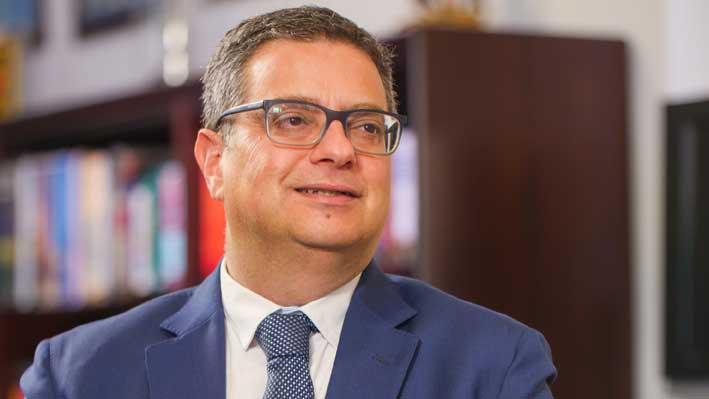
The PN general council is set to take a vote of confidence in your leadership next week. Why did you not do the simplest thing and call for such a vote right after the May elections?
Following the elections, there was an internal analysis and debate; we met quite a few times as the parliamentary group, the executive and the administration before concluding that reform – both political and administrative – was necessary. Politics, however, can be very unpredictable. There was the petition and, according to party statute, if there are more than 150 signatures, then anything is up for discussion. This was followed by two other petitions – one signed by the councillors, the other signed by paid-up members (tesserati) – and I felt that the right thing to do – not for myself, but for the PN – was to call a vote so that the councillors could express themselves.
This comes after almost two months of internal fighting. Is it fair to say that this has led to the PN ignoring its role as the main opposition party and watchdog on the government? Here I refer to the parliamentary motion on the Dragonara casino land, in favour of which the PN voted without remark.
Absolutely not! First of all, I disagree that there was in-fighting. When a party faces several consecutive losses, there has to be debate. This, of course, can get quite heated, but it has to happen. You need to stress test everything – see what the systems are, the institutions, the organs – and see what needs to be changed. Nothing can be taken for granted. So debate is a good thing, and I wouldn’t call it fighting. Despite all this, the PN has been an effective opposition. Just this week we had a debate on the Marsa racecourse, and had it not been for the Opposition, an investment in sports would have turned into an investment in speculation. There was also the Fortina issue, on which I spoke in Parliament, as did my colleagues. We put up a strong fight against what we consider the unwarranted removal of contractual obligations for the benefit of speculation. At one point in the debate, the government was unable to defend itself, which proves we are a solid opposition. Last Thursday, we brought forward the concerns of those who will be affected by the Central Link project. I also wrote directly to Prime Minister Joseph Muscat with regard to the inquiry into the assassination of Daphne Caruana Galizia. So, regardless of the internal debate we are currently engaged in, the Opposition is still making its voice heard.
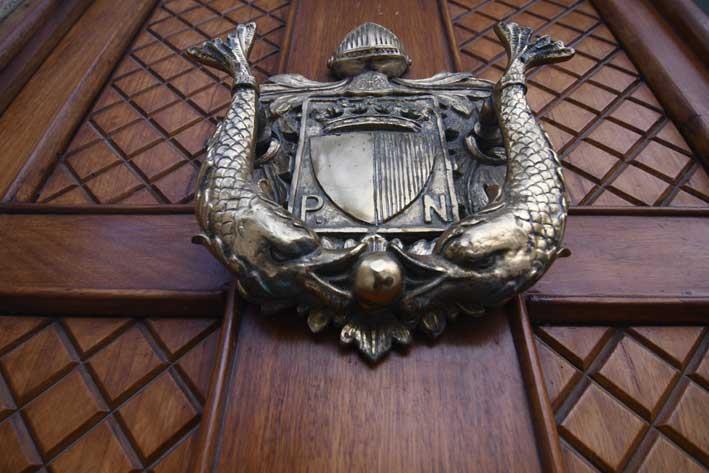
You convened the general council despite questions surrounding the validity of the petitions submitted. Does this mean you are confident you will win the vote?
That’s a good question. I believe the vote is not just about me, but the entire party. You need an opposition party which not only embraces restructuring and regeneration, but which also enjoys a sense of comfort in the knowledge that it can move forward and get things done. You mention the validity of the petitions; I do not want to waste time on procedure when we are talking about important reforms. I want to concentrate on substance; to understand the real changes which are necessary. Yes, formalities are important, but I decided to go for the vote and strengthen the party’s leadership – that’s what is most important. You cannot have a change in leadership every three months; debate, sure – every three weeks if necessary. But there needs to be a serenity, comfort and strength in the leadership, which should then reflect on any decisions taken.
Are you worried about how the vote might affect your position and the ‘serenity’ you’ve just mentioned?
No, I’m not – and for one reason: I am doing this with a sense of serenity, as I know it is for the good of the party. I am a democratic person – which is why I chose the PN – and I believe the people should always have the last word. You cannot escape debates or power struggles, but the strength of the people is what is most important; their will reigns supreme. I believe the councillors know that this is a delicate moment, but I am confident they will rise to the occasion, consider the consequences of their decision, and understand that they are not voting for me, but for a stronger PN, which needs a tranquil leadership to take the right decision and undertake the necessary reforms.
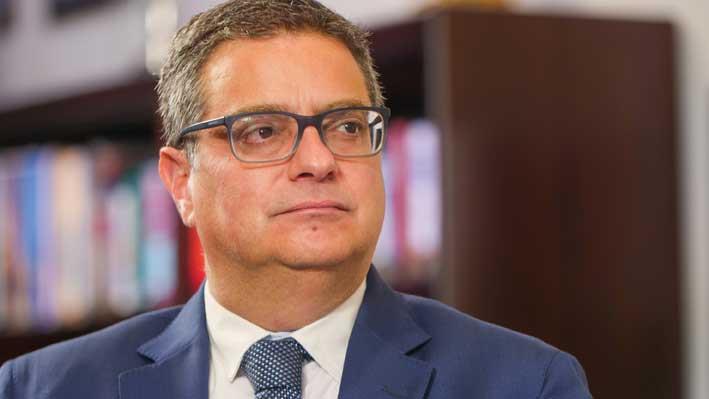
You mention the will of the people; will you resign if they vote against your leadership?
I think I’ve been clear. Party structures need to be respected in terms of the councillors and the paid-up members. Some very ambitious reforms were carried out by the previous administration, giving members a say in who should be leader and deputy leader(s). This needs to be respected. However, I don’t like to speculate; I choose to face this vote with serenity and tranquillity, and I’m sure the councillors will make the best choice.
You say you don’t like to speculate, but what will happen if you do win the vote?
I don’t want to win the vote – I want the PN to win it. Whatever the result may be, the PN will focus on political reform and internal restructuring, and on seeing who really loves the party and can contribute to it. The door is wide open for those who truly want to work for the party, but we want to move forward and there is no time to be lost on those who intend to damage and hinder it. We need to do what’s necessary for both the PN and the country.
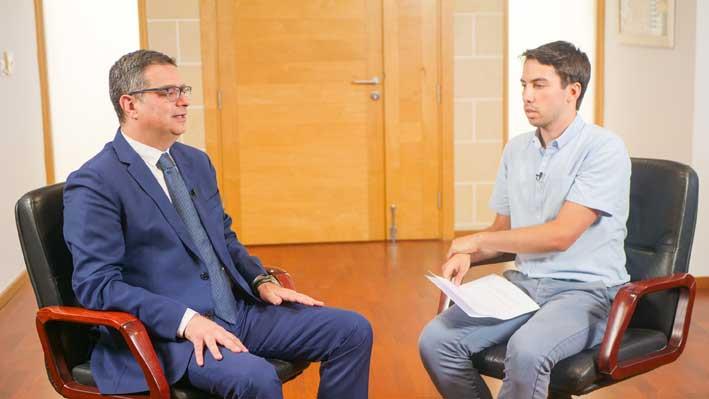
So if there are people within the party who, even if you win the vote, do not want to unite behind your leadership...?
That is their choice and we need to respect it.
A number of MPs still engage in mudslinging on social media, even though you’ve spoken against this. What do you intend to do about them?
I think people are capable of judging for themselves. Social media is very much like the village square of old, where everybody can express themselves. However, I think politicians are there to suffer the judgement of the people, and I think that PN voters know which politicians are working for the common good and whose intention it is to cause damage.
Don’t you think this behaviour shows the party in a bad light?
No, I don’t. It only reflects badly on the individual.
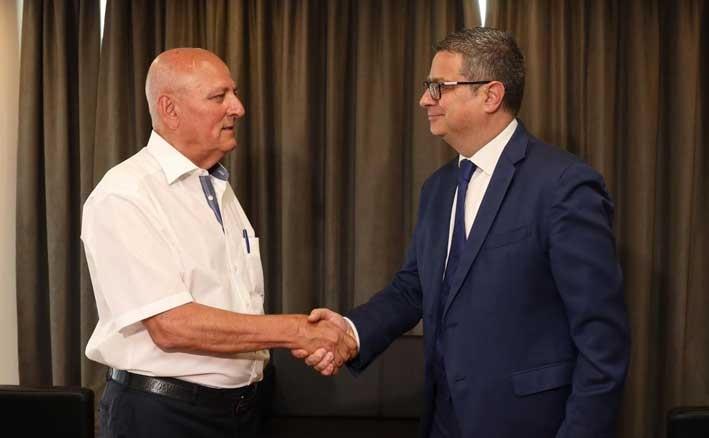
There is a Facebook page called PN mill-Ġdid Rebbieħ, which is run by, or with the involvement of, former party officials and people working with PN MPs or MEPs. Louis Galea, who you appointed to lead the party’s reform process, has warned against this type of behaviour. Does this mean this faction will refuse to give Louis Galea a chance?
I cannot answer that question. I have faith in Louis Galea and the response to his appointment has been overwhelmingly positive so far. He is highly respected and more than capable of doing the job, which is why I chose him with the unanimous approval of the executive. He has my full support. Nevertheless, I can assure you I will take whatever decisions are necessary against those who try to hinder the party, no matter how hard they may be.
With all due respect to Louis Galea, shouldn’t the party be looking towards a newer generation of reformers?
No, I don’t think so. If you get to know Louis Galea, you’ll soon realise that his ideas are still fresh. Even so, reform is not about adopting one person’s ideas, but must include those of youths, workers, professionals, academics and those active in civil society. Besides, just because a person has the benefit of wisdom does not mean they are living in the past, far from it. It means they are capable of preparing for the party’s future while respecting its past, and I can assure you this is exactly what Louis Galea will do. At a party convention I said the PN was going to be 140 years old; are we going to be 140 years old or 140 years young?
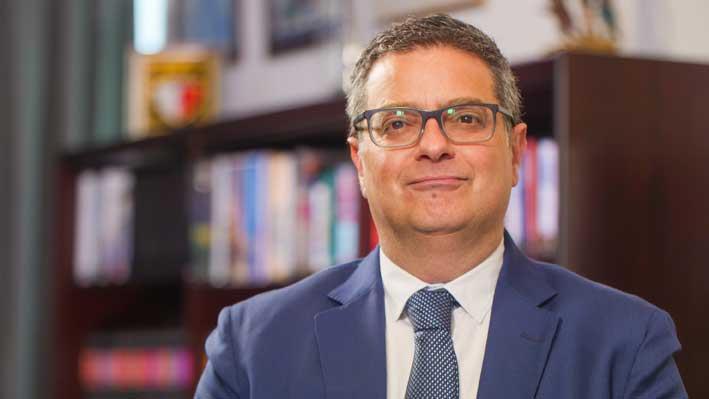
The 10-point plan you put forward for the party’s future was well-received by the executive but panned by the parliamentary group. Does this worry you?
It doesn’t. You are partly correct in that one of the points related to parliamentary group meetings being held every two weeks; an idea which was initially questioned. But now we are seeing the results, including groups made up of MPs and others who widen the pool of knowledge. This week I met four MPs at once to work on parliamentary issues, and last week I met three. Sub-groups are more effective, dynamic and incisive, particularly compared to what the government is doing.
In other words, the parliamentary group now supports the plan...
You cannot speak in absolute terms when it comes to politics. What I’m saying is that the reforms are being implemented and bearing fruit, at least with the parliamentary group. More reforms are to follow over the next year or so.
In a recent interview with The Malta Independent on Sunday you said that the parliamentary group is not the party. Aren’t they elected by the people to represent them?
I said more than that, including that I am not the PN; the leadership is not the PN; the activists are not the PN; but the people are. Anyone can be part of the PN and help change it. That is a message I firmly believe. It is the seismic shift I want to see in the PN so that it is no longer led by a few, but includes more people who can bring change. I have met a variety of people over the past week; some come with papers and notes on the changes they want to see within the party. People want to participate and share their ideas. I want to create structures which address this so that we might start drinking from a wider pool of ideas, not just from the same tap.
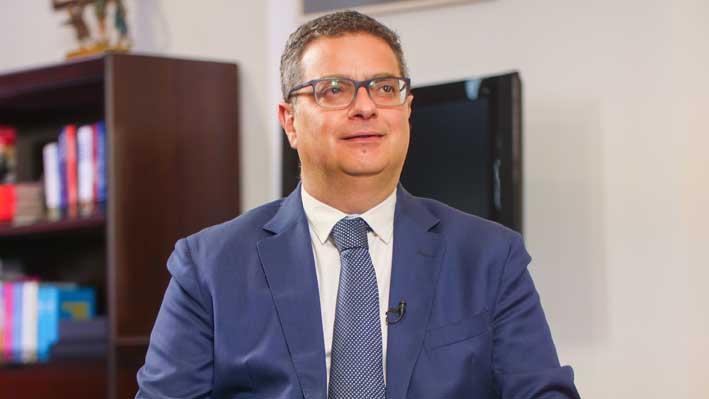
Do you think your ability to lead the party has been affected by all that has transpired over the past couple of months, including the heated debates, social media scuffles, leaks to the media and so on?
Yes, they have strengthened me. Debates, even heated ones, do not bother me. It only hurts when my family gets dragged into it, which I think is in poor taste. Choosing to give something back to your country should not expose your family to attack. This is not a price I’ll ever be willing to pay. When an adversary does this, it is not a true reflection of Maltese society.
A few days ago, a story was published alleging that someone close to you, Julian Micallef, had engaged another person to stalk your estranged wife and harass MPs through fake social media profiles. Were you aware of this?
I’m still not aware of anything like that happening. In fact, I’m certain none of it is true. This is what I was referring to; whoever tries to use people close to me, or even those who aren’t, to hurt my family has to examine his conscience and the way things are done in politics. I would not like to go there, but if I have information on who is trying to hurt my children, I will take all the steps I feel are necessary.
Have you spoken to Micallef?
I would not like to comment on that, but I will do all that I have to do.
The interview was conducted on Friday afternoon
Photos Alenka Falzon